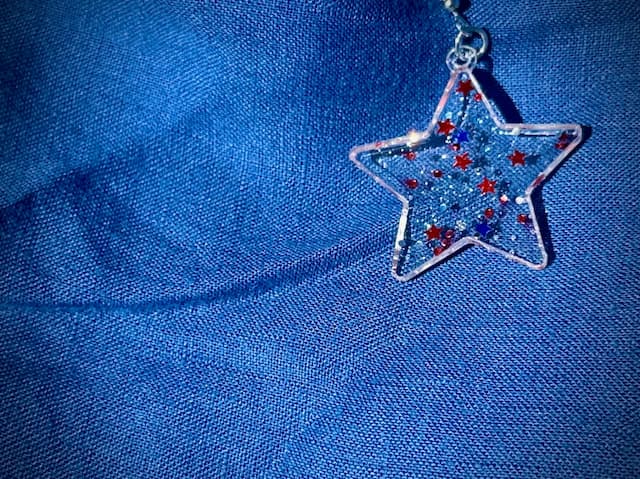The Solution to Pollution is Dilution - Joyfully Pressing On

When good speakers prepare, they anticipate the questions their listeners might ask. Last weekend I was blessed to speak at a women’s retreat.
And there was one question I was not ready for.
Perfectionism, Stagnation, or Growth?
I’ll tell you about the question that stopped my cold in a minute. But let me start here where I started with the group: growth. I don’t take for granted that we all embrace a growth mindset.
But keeping growth as the goal guards against two life-choking dangers: perfectionism and stagnation. Perfectionism says I can’t believe I messed up. How could I have done that? It won’t bend. It demands 100% in ourselves or others- now. And when failure inevitably comes perfectionism crumbles in defeat.
But stagnation is equally stifling. It wallows and argues that change is simply impossible. That’s just the way I am, it reasons, I can’t help it. John Piper calls it spiritual fatalism and says it’s when we feel that genetic forces and family forces and the forces of past experiences and present circumstances are just too strong to allow us to change.
A focus on growth prevents both perfectionism and spiritual fatalism. To say that we can amend the soil is to embrace growth.
How’s your soil?
“Amending the Soil” was the theme- it was all about how we can change the “pH of our hearts” for greater fruitfulness, productivity and growth.
With that growth groundwork laid, we moved to a list of “faith fertilizers,” found in 2 Peter 1:5-7. Add-ins like patience and love and self-control that change our heart soil so good things- or more good things- can grow.
Then we landed on verse 8: For if these qualities are yours and are increasing– note: increasing and growing, not perfected and arrived at- they keep you from being ineffective or unfruitful in the knowledge of our Lord Jesus Christ. Adding these qualities changes our “soil” for good.
Now I asked the ladies to describe the current state of their heart soil. Was it muddy, weedy, rocky, or clay? Exhausted, high-yield, wild, or dry?
The responses were what you expect from hard-working women on a weekend retreat: plenty of exhausted souls, two weedy women and one wild woman. Sharing time was going swimmingly.
Until Shelly chimed in with the question that stopped me cold.
What about contaminated soil?
What about contaminated soil? I’m surrounded by toxic relationships at work and at home. How am I supposed to change those?
Alrighty then. Easy for me to talk about growth and change and growing in grace. But I was not prepared for this.
Back to the garden metaphor for a minute. My dad adds coffee grounds to the soil around his blueberries to help the plants grow. But what if there’s a can of paint buried next to the blueberry plants seeping its poisons into the roots?
What about polluting influences and toxic people we can’t escape? How does growth come then?
The Solution to Pollution? Dilution.
Thankfully, my friend Susanne came to my rescue: The solution to pollution is dilution, she said with a grin.
Susanne’s a nurse and she knows. You can’t always remove toxins from the blood, but you can dilute them. You can insert an IV and dilute with fluids.
To go back to the garden metaphor, it means if you dilute a pollutant enough, the resultant intensity of the pollution is reduced; therefore adding clean material to a contaminated product will reduce the toxicity of the resultant mix…diluting the intensity will reduce the potency of a problematic pollutant with dilution.
Shelly was right. We can’t remove all the corruption around us. Workplaces, families of origin, debilitating diseases- all be out of our control.
But we can “reduce the potency of the problematic pollutant.” We can do that.
Change what you can change.
We can’t always change our circumstances. Our world is polluted. It is contaminated and polluted and we feel it. Little ones get infected and we weep. As much as we’d like to insulate ourselves and those we love from contamination, we just can’t.
But we can change what we can change. We can dilute the toxic influences in our soil with good influences.
- We cannot walk away from every toxic relationship, but we can delight in the saints in the land.
- We cannot avoid all discouraging words, but we can feed our minds lie-defying, life-giving truth.
- We cannot escape the downers around us, but we can nourish friendships that bring refreshment and joy.
We are not spiritual fatalists, so toxic relationships” need not hinder growth. We can phone a friend and say, Help me please or text a group, Please pray. We can open the Bible and let its pure words cleanse our contaminated souls.
It won’t be easy. It will take God’s power energizing our effort to “reduce the potency” of the pollution we can’t escape. But we can–we must- dilute.
But there will come a day.
But there will come a day when we won’t have to deal with toxic people and debilitating diseases, with polluted water and contaminated land. All mysterious will be bright at last.
All will be healed and clean. There will be no toxins seeping or wounded weeping then. And there will be abundant fruit.
But while we await that glorious day, the best solution to pollution might just be dilution.
Then the angel showed me the river of the water of life, as clear as crystal, flowing from the throne of God and of the Lamb down the middle of the great street of the city. On each side of the river stood the tree of life, bearing twelve crops of fruit, yielding its fruit every month. And the leaves of the tree are for the healing of the nations. No longer will there be any curse. The throne of God and of the Lamb will be in the city, and his servants will serve him. They will see his face…
Revelation 22:1-4a




